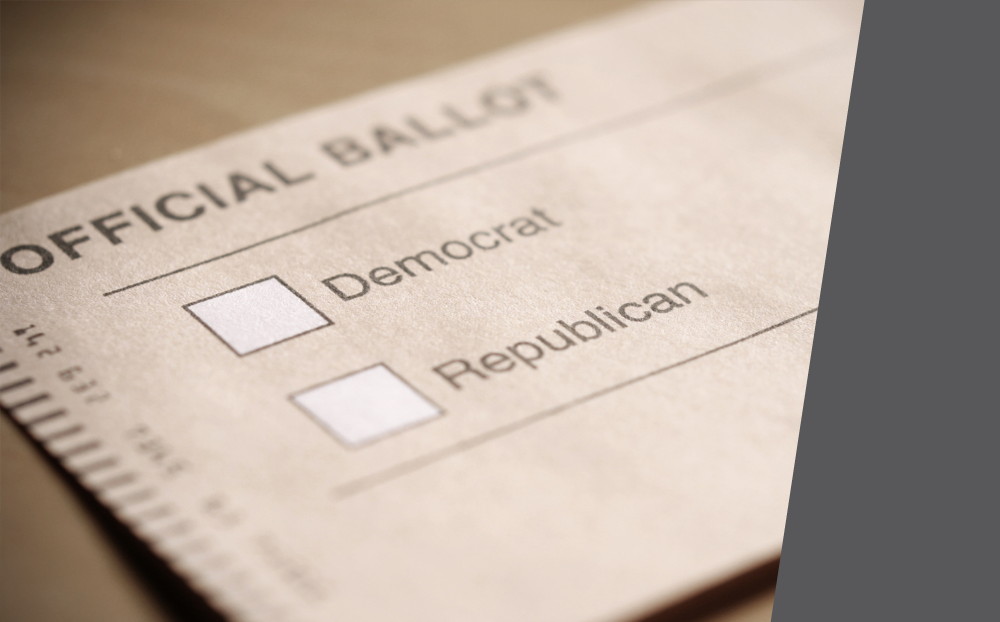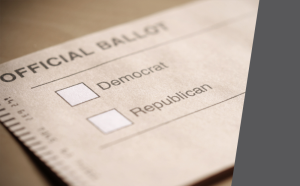
by | Mar 10, 2021 | Uncategorized
 It’s a fair question: who, exactly qualifies as a “journalist” these days? Can just anyone be considered a journalist, or are there certain educational and professional requirements involved? Do “citizen journalists” — everyday folks equipped with smart phones who are in the right place at the right time —count as journalists?
It’s a fair question: who, exactly qualifies as a “journalist” these days? Can just anyone be considered a journalist, or are there certain educational and professional requirements involved? Do “citizen journalists” — everyday folks equipped with smart phones who are in the right place at the right time —count as journalists?
As Professor William E. Lee pointed out, “Anyone can be a journalist and they don’t need an affiliation with an established outlet…it’s increasingly important that unaffiliated journalists know they have the same legal protection as a reporter at a newspaper. It’s significant for the development of alternative forms of expression that do not fit neatly in our traditional concepts of speech or press.”
We could argue about who is and who isn’t a journalist all day, but there’s a bigger problem at hand: How does the First Amendment currently protect so-called “citizen journalists,” and what can be done to improve their free press freedoms? Let’s examine some of the concerns we have about citizen journalism:
Prosecuting Citizen Journalists
In 2017, Georgia citizen journalist Nydia Tisdale was convicted of a misdemeanor charge related to obstruction while filming a 2014 campaign rally that was publicly advertised but located on private property. When campaign organizers demanded she stop filming the event, Tisdale refused and was forcibly removed from the property. While she was acquitted of more serious felony charges, even the misdemeanor conviction could be a serious blow to citizen journalists’ rights around the country.
Around the world, citizen journalists are under attack. Many politicians and members of the public claim they’re not “real” journalists and therefore shouldn’t receive the same rights and protections as reporters from established media organizations. Many citizen journalists have faced threats, harassment and even arrest, as in the case of Priscilla Villarreal.
Are these incidents proof that the First Amendment rights of these citizen journalists are being violated, or are these incidents proof that citizen journalists do not and/or should not receive the same treatment as professional journalists associated with established news outlets? Perhaps only time (and many more legal battles) will give us any clarity on these issues.
Freedom of Expression Alternative?
As UNESCO points out, citizen journalists ought to receive similar protections as “established” and “professional” journalists in order to ensure freedom of expression for all citizens. Thanks to online publishing platforms like WordPress, Tumblr, YouTube and other social media channels, there are far fewer restrictions and obstacles preventing everyday people from reporting on local events, video-taping law enforcement and broadcasting images, audio and video about natural disasters happening in their communities.
Since we are increasingly reliant on citizen journalists to cover small and major events alike, they certainly should receive the same press freedom protections as professional journalists. The question that remains now is: How can we ensure citizen journalists, who may not have media badges and credentials and expensive-looking equipment, are given equal access to reporting opportunities as their professional counterparts?

by | Feb 10, 2021 | Uncategorized
 Conflict is an inevitable part of living in human society, but interpersonal conflicts seem to be particularly emotionally-charged in the U.S. nowadays, regardless of whether you’re arguing about politics, finances or other areas of dispute in our daily lives.
Conflict is an inevitable part of living in human society, but interpersonal conflicts seem to be particularly emotionally-charged in the U.S. nowadays, regardless of whether you’re arguing about politics, finances or other areas of dispute in our daily lives.
If you find yourself getting upset and angry (or perhaps shutting down and shutting others out), you might want to try employing these three proven strategies for maintaining calm in heated arguments:
Focus on Your Breathing
There have been countless studies conducted on the psychological and physiological benefits of breathing, and the results are fairly consistent: slow, deep breathing techniques are proven to reduce your heart rate, increase your comfort and mental alertness, and reduce arousal, anxiety and anger.
When engaged in a heated argument, focusing on your breathing (and your body overall) can help you maintain physical and mental calmness. As silly as it may seem to have to practice something all humans do naturally and unconsciously throughout our daily lives, practicing breathing techniques is the only way to experience the full benefits. Without a keen sense of self-awareness achieved through consistent practice, it may seem like deep breathing doesn’t help much. In reality, this is one of the best ways to stay calm in a heated argument.
Engage in Reflective Listening
Reflective listening involves genuinely paying attention to another person’s words, feelings and nonverbal expressions in an attempt to understand where they’re coming from (which is a core component of empathy). When you’re engaged in reflective listening, you shouldn’t interrupt the other person — no matter how much you might want to. Instead, offer brief forms of acknowledgement, such as “m-hmm,” “go on,” “oh really?” or even just a simple head nod or change of facial expression to signal that you’re actively listening.
Reflective listening requires a considerable amount of self-awareness and self-control, which also relate to the concept of motivated reasoning that we previously wrote about.
Consider the Consequences
When you’re involved in an interpersonal conflict, consider how much you value the person versus how much you value your position on a given matter. If this argument continues and heads in a more negative direction, is it worth sacrificing the stability of your relationship with this person in order to vocalize your viewpoints and attempt to win them over?
With this in mind, consider the potential outcomes of an argument. Is it over a relatively minor issue (in the overall scope of your life) or is this a major problem with potentially life-changing consequences? Is the person/group involved worth the time and emotional energy you’re putting into arguing with them? If so, would you still want to argue with them if there was a 0% chance that they would ever change their mind?
The questions above ask you to consider your relationship with the person(s) you’re arguing with, the issue you’re divided over, and the potential consequences that may result from the conflict. When involved in a heated argument, it’s easy for us to get tunnel vision and ignore these important considerations in order to focus on “winning,” but this is rarely an effective strategy for actually changing people’s viewpoints and maintaining healthy relationships with them at the same time.
For more information on improving your constructive communication skills, be sure to download the new white paper on our website.

by | Jan 27, 2021 | Uncategorized
 Have you ever wondered what freedom of expression looks like in countries beyond the United States? Free speech laws are influenced by a country’s history, political climate, socio-cultural dynamics and other factors, and you may be surprised by how some countries differ from the U.S.’s First Amendment.
Have you ever wondered what freedom of expression looks like in countries beyond the United States? Free speech laws are influenced by a country’s history, political climate, socio-cultural dynamics and other factors, and you may be surprised by how some countries differ from the U.S.’s First Amendment.
This article will review three other countries’ laws and regulations related to freedom of expression and compare certain policies with similar policies enacted in the U.S.
Sweden
World Press Freedom Index ranking (as of 2020): 4th
Sweden has a long history of advancing freedom of the press and free speech, but notably, it has criminalized defamation and prosecutes those who violate anti-hate speech clauses enshrined in the Fundamental Law on Freedom of Expression.
According to research published by the Library of Congress, Sweden differs from the U.S. when it comes to freedom of expression by criminalizing public statements that threaten or disrespect an individual or group on the basis of identity factors such as race, gender, faith or national origin.
Interestingly in 2017, a citizen-curator for the official Sweden Twitter account – which was managed by one new citizen per week between 2011 and 2018 – blocked over 14,000 users for suspected Nazi links or “threats against migrants, women and LGBTQ people” (the block list was eliminated after public backlash).
Japan
World Press Freedom Index ranking (as of 2020): 66th
Like Sweden and the U.S., Japan protects freedom of speech in its Constitution but this freedom is not without limitations.
For instance, interrupting a political campaign speech is prohibited by Japan’s Public Office Election Act and may be punishable by imprisonment (up to 4 years) or a fine of up to one million yen (approx. $9,000 US). Japan’s courts have also ruled that an individual or group’s actions that make it impossible or difficult for members of an audience to hear a speech may constitute a punishment-worthy disruption of a campaign speech, which is quite a different approach than what we’ve witnessed in political campaign speeches in the U.S.
Japan also criminalizes certain speech acts involving defamation, insult or intimidation.
South Africa
World Press Freedom Index ranking (as of 2020): 31st
Section 16 of the Republic of South Africa’s Constitution (1996) guarantees the right to freedom of expression – with some caveats. University of the Witwatersrand Professor Victoria Bronstein wrote in a 2006 report that South Africa’s limitations on free speech do not protect war propaganda, inciting violence, or advocating hatred based on race, ethnicity, gender or religion.
As of 2016, a newer piece of legislation — The Prevention and Combating of Hate Crimes and Hate Speech Bill — seeks to increase protections for individuals and groups facing discrimination, harassment and/or violence on the basis of identity factors (e.g., age, disability, skin color, culture, sex/gender identity, language).
The bill was presumably designed to resolve lasting implications of the country’s history of racial segregation (Apartheid). However, there is also vocal opposition to it from organizations such as the Helen Suzman Foundation (a nonpartisan South African think tank centered on promoting liberal democratic values), which argued that the bill doesn’t clearly differentiate between offensive versus harmful speech, among other reasons.

by | Jan 13, 2021 | Uncategorized
 What roles do your social identities play in your life?
What roles do your social identities play in your life?
Whether or not we’re always conscious of it, our group affiliations – such as nationality, economic class, gender, race/ethnicity, dis/ability, military/veteran status, etc. – are significantly influential factors when it comes to who we interact with, how others engage with us, how and which public policies impact us (not to mention how we feel about those policies) and so much more.
Given the importance of varying aspects of our identities in everyday interpersonal situations, it’s no wonder social identities are increasingly influencing our political affiliations, behaviors and feelings as well.
As Peter Grier wrote in an October 2018 article for the Christian Science Monitor: “social identity is now at the heart of the two big parties that govern America. They’re split along racial, religious, and cultural lines. The crosscutting social ties that once promoted partisan understanding have withered. Democrats and Republicans live in different neighborhoods, send their kids to different schools, attend different churches, and increasingly inhabit their own news and information bubbles.”
Over the past few decades, there have been countless studies conducted on the influence of social identities in American politics, including the phenomenon of “identity politics” itself.
In the book, Political Tribes: Group Instinct and the Fate of Nations, author and Yale Law School Professor Amy Chua explained how identity politics came to mean two very different things for liberals and conservatives.
For the Left, Chua wrote that identity politics became a means for “confront[ing] rather than obscur[ing] the uglier aspects of American history and society,” as we’ve seen from the rise of “cancel culture,” discussions about systemic racism and cultural appropriation, implicit bias trainings, and the expansion of gender identity vocabularies, to name a few.
Meanwhile, the Right – which has typically eschewed racial group affiliations and privileged individualism as one of America’s greatest ideals – has increasingly engaged in similar forms of identity-based political tactics.
A political commentator cited in Chua’s book summarized the rise of white identity politics succinctly: “many feel that society has come to glorify all things non-white, demonize all things white, and that if they do not fight back no one will…feeling as though they are under perpetual attack for the color of their skin, many on the right have become defiant of their whiteness, allowing it into their individual politics in ways they have not for generations” (p.191).
In a nutshell: our social identities have become so deeply connected to who we are as citizens and voters that it often seems impossible to separate identity from politics, whether you’re liberal, conservative, or anything in between.
Perhaps this reveals another cause behind our collective inability to reach compromises and engage in constructive political dialogues: many people perceive they’re being targeted by the “other side” based on some aspect of their identity, which prompts them to feel defensive and even lash out in response.
To learn more about the growing “pandemic of polarization” happening in the U.S., be sure to sign up for our soon-to-be-released white paper, which will be exclusively available for First Amendment Voice newsletter subscribers and members.

by | Dec 23, 2020 | Uncategorized
 If all news is BREAKING NEWS and demands our immediate attention, then how can citizens possibly stay adequately informed when so-called “breaking news” comes out 24/7/365?
If all news is BREAKING NEWS and demands our immediate attention, then how can citizens possibly stay adequately informed when so-called “breaking news” comes out 24/7/365?
If anyone can start a website, rhetorically frame their opinions as “facts,” and call themselves a “journalist,” then what does journalism mean anymore?
And if any critical report published by a reputable news organization can be dismissed as “fake news,” then have we lost our ability to speak truth to power and hold public figures accountable?
These questions highlight some of the biggest challenges facing journalists, media organizations and freedom of the press in our current socio-political climate, all while trying to adapt business models to changing technology and economics.
Regarding the problem of never-ending streams of “breaking news,” neuroscience and media researcher Lu Hanessian wrote in a May 2020 article on Medium: “the News is flooded and hyper-channeled. Divided into Us and Them. Facts and Conspiracies. Reporting and distorting news. Truth-telling and Bot sharing. Breaking News has become a catch-all phrase. A massive net to capture as many eyes and ears as possible. Attention is revenue.”
The industry’s fervent obsession with being the first source to break a major news story – and thus, get the most recognition from audiences – poses some troubling long-term implications for public trust in the media.
As an August 2020 Pew Research report showed, 55% of Americans say careless reporting leads journalists to make mistakes, while 44% of Americans believe journalists intentionally mislead the public through erroneous reporting. 53% agreed that the “rapid pace of breaking news” is a common cause of mistakes in the media.
Furthermore, the hyperdrive pace of today’s overwhelming, 24/7 news cycle sometimes leads to psychological consequences for audiences and journalists alike.
An April 2020 Psychology Today article explained how today’s dramatic, hyped-up media climate leads some people to compulsively obsess over the news as a form of reassurance-seeking:
24/7 digital access to a bottomless well of information and misinformation comes with psychological dangers. Have you ever gotten stuck for hours trying to self-diagnose a health problem on the internet? Or hitting ctrl-R over and over, waiting for exit polling numbers on the night of an election? Suddenly, that well of information feels more like quicksand.
Perhaps you’ve experienced something similar before? While we can’t fully detach from current events and media – especially while many of us are reliant on the Internet to work from home – there are ways to moderate your exposure to news and kick the “infinite scroll” habit for good.
First Amendment Voice’s upcoming white paper on polarization, social media, and civil discourse in the U.S. will offer a treasure trove of communication and “digital detox” strategies for successfully engaging with those who disagree with you, mitigating the effects of news cycle fatigue, and so much more.
To get the latest news on the white paper’s release, please subscribe to our newsletter in the meantime.

by | Dec 9, 2020 | Uncategorized
 Have you ever paused to consider the ways in which you may be arguing from a biased perspective when engaging in a political debate? Even if you remained completely calm, cited evidence from credible sources, and logically articulated each of your points, could it be possible that you are still letting personal biases get in the way of genuinely objective reasoning?
Have you ever paused to consider the ways in which you may be arguing from a biased perspective when engaging in a political debate? Even if you remained completely calm, cited evidence from credible sources, and logically articulated each of your points, could it be possible that you are still letting personal biases get in the way of genuinely objective reasoning?
Chances are, you’ve probably engaged in what is called “motivated reasoning” before, even if you didn’t consciously realize it at the time. As Nicholas Epley and Thomas Gilovich explained in their 2016 article published in the Journal of Economic Perspectives: “people generally reason their way to conclusions they favor, with their preferences influencing the way evidence is gathered, arguments are processed, and memories of past experience are recalled.”
Just as we’re prone to self-serving biases to explain events that happen to/around us, we’re similarly vulnerable to motivated reasoning (also referred to as confirmation bias). In an article published in the Journal of Communication in 2011, political science researchers James Druckman and Toby Bolsen described motivated reasoning as “the tendency to seek out and/or view new evidence as consistent with one’s prior views, even if this is not objectively accurate.”
In simplest terms: humans generally prefer to consume and interact with information that aligns with their pre-existing beliefs, but we’re not so inviting of information that contradicts our beliefs (even if the information is reliable and accurate). Some of this is associated with our emotional responses to information, but that doesn’t explain the whole story.
Let’s dive in further to assess how motivated reasoning is interfering with Americans’ ability to constructively engage in political dialogues with those whom they disagree.
As University of California, Santa Cruz professor of philosophy Jonathan Ellis said in a 2017 interview with NPR News:
Human beings have been doing this forever. So Thucydides, an ancient Greek historian, wrote that it’s a habit of human beings to use sovereign reason to thrust aside what they do not fancy. And what he was describing, and in fact what countless playwrights, philosophers and novelists have described ever since, are these human tendencies towards confirmation bias, rationalizations, self-deception. And I think this is the same problem that we’re observing in our political culture today.
So all humans are prone to motivated reasoning, right? What about those of us who are well-read and stay up-to-date with the news? Are well-educated, scientifically literate, and self-aware individuals free from the confines of motivated reasoning?
Unfortunately, as professor of communication, public policy and urban affairs at Northeastern University Matthew Nisbet wrote in a 2016 article for Skeptical Inquirer Magazine:
It is the best educated and most scientifically literate who are the most prone to motivated reasoning…studies suggest that strong partisans with higher science literacy and education levels tend to be more adept at recognizing and seeking out congenial arguments, are more attuned to what others like them think about the matter, are more likely to react to these cues in ideologically consistent ways, and tend to be more personally skilled at offering arguments to support and reinforce their preexisting positions.
On the flip side, however, research has shown that people who are scientifically curious (as opposed to merely scientifically literate, which involves comprehension) are less prone to resorting to partisan biases, whether they’re conservative or liberal. Further studies are likely necessary for understanding this phenomenon, but the scientific curiosity – engaging with information for personal pleasure – may indeed be one solution for resolving issues associated with motivated reasoning.
For more information on the ways in which our minds influence our ability to constructively engage in socio-political discourse, be sure to subscribe to our newsletter to receive our soon-to-be-released white paper covering motivated reasoning and so much more!

 It’s a fair question: who, exactly qualifies as a “journalist” these days? Can just anyone be considered a journalist, or are there certain educational and professional requirements involved? Do “citizen journalists” — everyday folks equipped with smart phones who are in the right place at the right time —count as journalists?
It’s a fair question: who, exactly qualifies as a “journalist” these days? Can just anyone be considered a journalist, or are there certain educational and professional requirements involved? Do “citizen journalists” — everyday folks equipped with smart phones who are in the right place at the right time —count as journalists?

 Conflict is an inevitable part of living in human society, but interpersonal conflicts seem to be particularly emotionally-charged in the U.S. nowadays, regardless of whether you’re arguing about politics, finances or other areas of dispute in our daily lives.
Conflict is an inevitable part of living in human society, but interpersonal conflicts seem to be particularly emotionally-charged in the U.S. nowadays, regardless of whether you’re arguing about politics, finances or other areas of dispute in our daily lives.
 Have you ever wondered what freedom of expression looks like in countries beyond the United States? Free speech laws are influenced by a country’s history, political climate, socio-cultural dynamics and other factors, and you may be surprised by how some countries differ from the U.S.’s First Amendment.
Have you ever wondered what freedom of expression looks like in countries beyond the United States? Free speech laws are influenced by a country’s history, political climate, socio-cultural dynamics and other factors, and you may be surprised by how some countries differ from the U.S.’s First Amendment.
 What roles do your social identities play in your life?
What roles do your social identities play in your life?
 If all news is
If all news is 
 Have you ever paused to consider the ways in which you may be arguing from a biased perspective when engaging in a political debate? Even if you remained completely calm, cited evidence from credible sources, and logically articulated each of your points, could it be possible that you are still letting personal biases get in the way of genuinely objective reasoning?
Have you ever paused to consider the ways in which you may be arguing from a biased perspective when engaging in a political debate? Even if you remained completely calm, cited evidence from credible sources, and logically articulated each of your points, could it be possible that you are still letting personal biases get in the way of genuinely objective reasoning?



